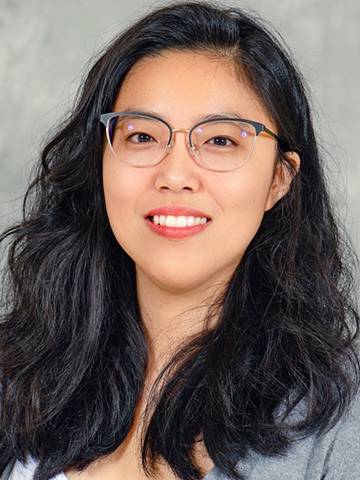Professor & Health Informatics Researcher Xiaoyu Liu, Ph.D. Joins Saint Louis University Health Management and Policy Department
The Saint Louis University College for Public Health and Social Justice has named Xiaoyu Liu, Ph.D. as a tenure track assistant professor in the Department for Health Management and Policy.
Dr. Liu comes to Saint Louis University from Southern Illinois University-Carbondale (SIU-C) with a deep interest in identifying patients' unmet information needs and implementing solutions to assist them in making better health-related decisions with quality information.

At SIU-C Dr. Liu worked as an assistant professor of health care management focusing on topics such as health information on the internet/social media, infodemic, aging, cardiovascular, maternal health, clinical decision support system, mHealth, and assisted living technology.
In today's rapidly changing landscape, Dr. Liu finds purpose and cause in the need to equip future leaders with the necessary technological skills to tackle the challenges faced by the health care industry.
“Drawing on my background in management and health informatics, my teaching passion lies in enlightening future health care leaders and professionals about the significant impact of technology on shaping health care practice, enhancing patient outcomes, and optimizing operational efficiency,” Dr. Liu said.
“As an educator, I aim to inspire and empower students by providing them with the knowledge and tools needed to leverage technology effectively in health care management.”
Recently, Dr. Liu obtained her Ph.D. from the University of Wisconsin-Milwaukee with a focus on biomedical and health informatics (knowledge-based systems) after earning an MBA from Middle Tennessee State University.
Dr. Liu says that her curiosity about the health care industry propels research pursuits in health informatics.
“My research focuses primarily on addressing unmet health needs and contributing to the development of effective AI-based interventions, with a strong emphasis on the value of user trust and experience. In an era where technology plays an increasingly vital role in healthcare, it is crucial to build AI models that are explainable, transparent, and interpretable,” she said.
Through her research, she contributes to the advancement of health informatics by developing innovative approaches that leverage information technology to improve health care delivery, patient experiences, and overall outcomes.
“My career trajectory has been significantly influenced by my training transition from business management to the field of health informatics. Health informatics is a multidisciplinary domain that harnesses computational science to improve health care outcomes and efficiency” Dr. Liu said. “This decision was prompted by my participation in a research project in 2014, where we aimed to optimize care resources and address aging challenges in Beijing by exploring nursing and medical resources. Through this experience, I witnessed the transformative potential of information technology in addressing broader public health concerns.”
Through previous research projects, Dr. Liu has come to understand the essential integration of management principles in leveraging technology for effective health solutions. For Dr. Liu, the key lies in identifying unmet needs and effectively utilizing appropriate technological solutions, she says.
“Through my career decision and research experiences, my perspective has broadened, and my understanding of the intersection between technology, healthcare, and management has deepened. These perspectives have played a pivotal role in shaping my current position, and they will continue to guide me in my future professional endeavors,” she said.
As Dr. Liu teaches the next crop of health care managers and policy makers, her own education never stops. Through personal and professional growth, Dr. Liu finds pride in her role as a facilitator of effective communication and education across disciplines.
Some of her greatest accomplishments include “working to bridge the gap between future health care professionals and technological tools, empowering them to leverage technology to address unmet challenges and improve patient care outcomes.”
“Looking ahead, the future of healthcare management will continue to be shaped by ongoing advancements in information technology. Technological interoperability and data sharing will play a crucial role in facilitating seamless coordination and collaboration among healthcare providers, ultimately leading to more efficient and comprehensive care delivery,” she said. “Artificial intelligence, machine learning, and predictive analytics will continue to be further explored and deployed to identify trends, optimize resource allocation, and support informed decision-making.”
College for Public Health and Social Justice
The Saint Louis University College for Public Health and Social Justice is the only academic unit of its kind, studying social, environmental and physical influences that together determine the health and well-being of people and communities. It also is the only accredited school or college of public health among nearly 250 Catholic institutions of higher education in the United States. Guided by a mission of social justice and focus on finding innovative and collaborative solutions for complex health problems, the college offers nationally recognized programs in public health and health administration.